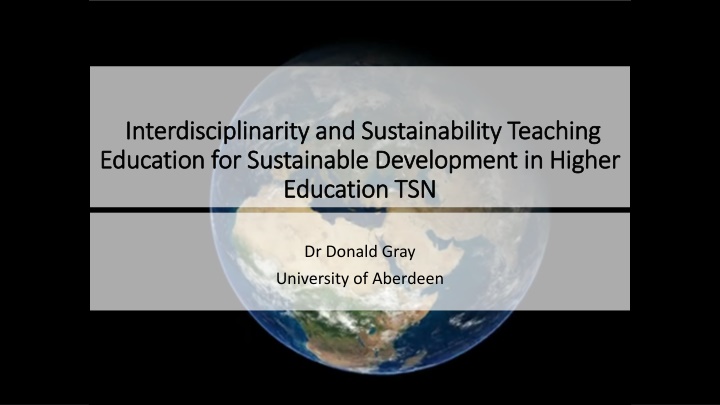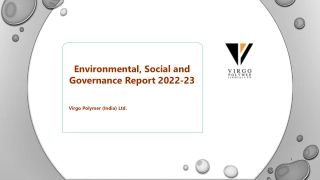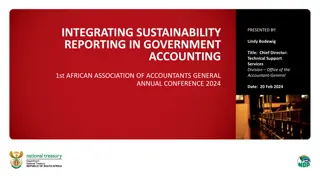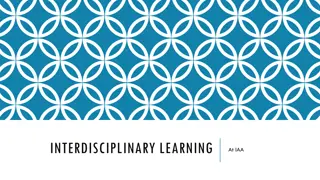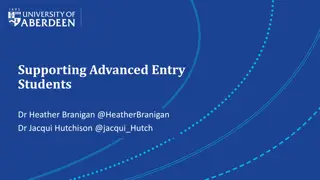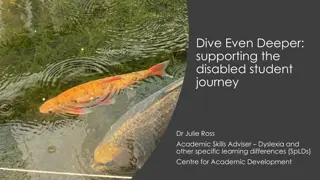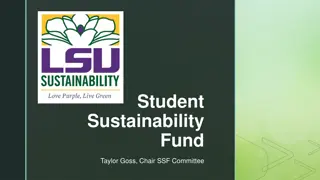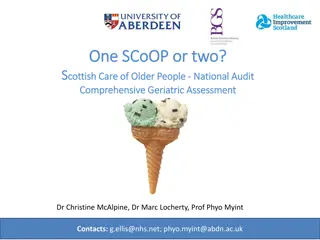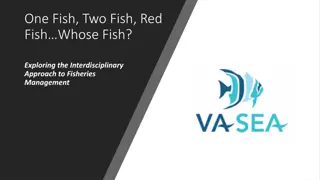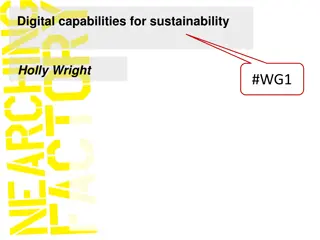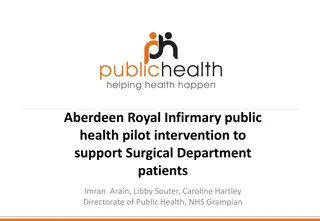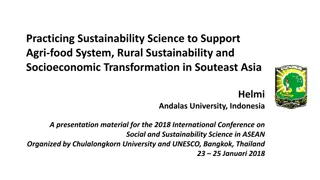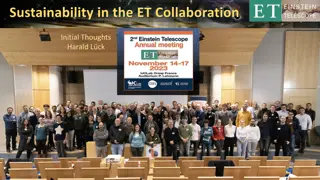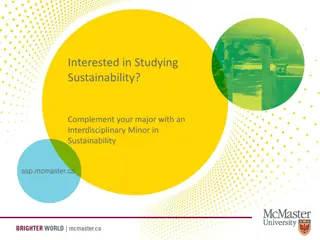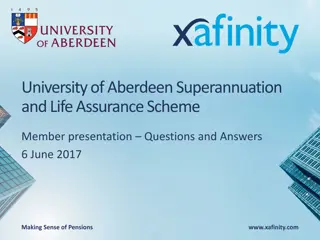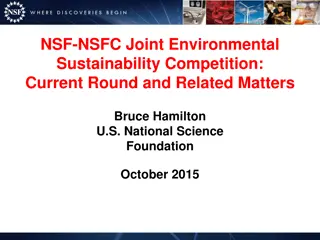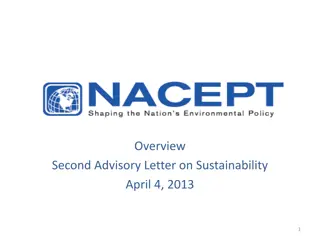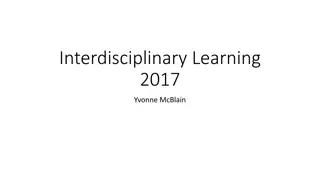Interdisciplinary Sustainability Education at University of Aberdeen
The University of Aberdeen offers innovative interdisciplinary courses focusing on sustainability challenges, natural world exploration, and sustainable development, encouraging a holistic understanding of complex societal issues. Students engage in thought-provoking discussions, field visits, and coursework assessments to foster critical thinking and global citizenship. Explore the unique curriculum reform process and groundbreaking courses designed to shape future leaders in sustainable practices.
Uploaded on Mar 07, 2025 | 0 Views
Download Presentation

Please find below an Image/Link to download the presentation.
The content on the website is provided AS IS for your information and personal use only. It may not be sold, licensed, or shared on other websites without obtaining consent from the author.If you encounter any issues during the download, it is possible that the publisher has removed the file from their server.
You are allowed to download the files provided on this website for personal or commercial use, subject to the condition that they are used lawfully. All files are the property of their respective owners.
The content on the website is provided AS IS for your information and personal use only. It may not be sold, licensed, or shared on other websites without obtaining consent from the author.
E N D
Presentation Transcript
Interdisciplinarity Interdisciplinarity and Sustainability Teaching and Sustainability Teaching Education for Sustainable Development in Higher Education for Sustainable Development in Higher Education TSN Education TSN Dr Donald Gray University of Aberdeen
Curriculum Reform Process 2010. 6thCentury Courses from 2011 The introduction of a series of inter-disciplinary Sixth Century Courses (named to celebrate the University being in its sixth century) was among the most exciting innovations of the Curriculum Reform process. With academics from across the University working across disciplinary boundaries, these courses lend themselves to the discussion of different approaches to the challenges facing modern society. Initially focussed on levels 1 and 2, the course options include : Sustainability: Challenges and Opportunities Oceans and Society Sustainable International Development Natural World Humans and Other Animals What Gives us Rights? Mankind in the Universe: The Question of Objectivity
SX1011: Sustainability: Challenges and Opportunities Course themes: Conceptualising and understanding sustainability The inter-connectedness of local and global issues Food systems and sustainability Science and other ways of knowing the world Sustainability science as a new paradigm The politics of sustainability Legislative challenges Becoming a global citizen SX1019 Africa: Sustainable Development for All? (Developed from SX1012 Sustainable International Development) This 6th Century course is very innovative and the first of its type at the University of Aberdeen as it is a combination of a six week on-line course (see https://www.futurelearn.com/courses/africa-sustainable- development) together with personal tuition, self-directed learning and group work. The course addresses the big question of why although Africa as a continent is rich in natural resources and has increasing rates of wealth in some countries, there are many sub-Saharan African countries which are performing poorly on development indicators for reducing poverty, hunger, unemployment and have poor maternal health, whilst some other countries are forging ahead.
SX1504: The Natural World In doing this course, we hope that you will develop your appreciation of the natural world around us through your own experiences. We also hope that you will learn from others' perceptions of nature through visual art, literature, education and science. These issues will be covered in a set of six lectures and seminars and in the accompanying field visits. Your participation in these events should expose you to new concepts, with the exploration and synthesis of ideas your own personal values. There are two coursework assessments: (a) Observing nature using a choice of media, and (b) Reflecting on how your thoughts and values correspond with those of others.
Environmental Humanities Programme How does it work? The Aberdeen Environmental Humanities degree is a joint degree, because we believe you must work together across a range of disciplines to solve the environmental crisis. You can do EH together with biology, with anthropology, or with history. In each year there are two required courses: Year 1: Mountains Islands Year 2: Resources Justice Year 3: Posthumanities Roots and Branches Year 4: EH Seminar I & II and Keystone project Through competition, some students may be selected for an internship; some students will choose to undertake a creative project; and some will undertake a research project. All students are expected to choose a specific place, such as an estuary, valley, village or island and build their keystone project both in and about that place and its social and biological communities.
